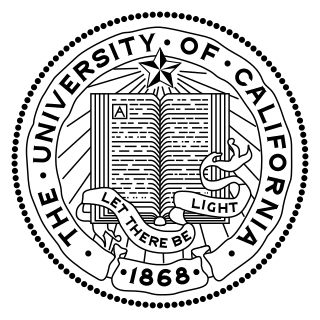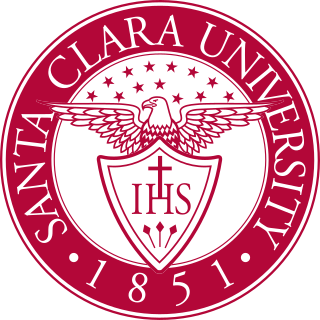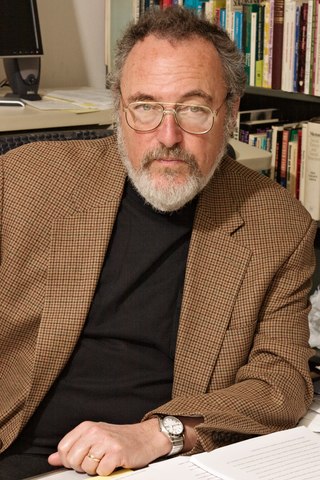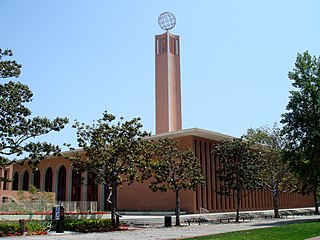
The University of California (UC) is a public land-grant research university system in the U.S. state of California. Headquartered in Oakland, the system is composed of its ten campuses at Berkeley, Davis, Irvine, Los Angeles, Merced, Riverside, San Diego, San Francisco, Santa Barbara, and Santa Cruz, along with numerous research centers and academic abroad centers. The system is the state's land-grant university. Major publications generally rank most UC campuses as being among the best universities in the world. In 1900, UC was one of the founders of the Association of American Universities and since the 1970s seven of its campuses, in addition to Berkeley, have been admitted to the association. Berkeley, Davis, Santa Cruz, Irvine, Los Angeles, Santa Barbara, and San Diego are considered Public Ivies, making California the state with the most universities in the nation to hold the title. UC campuses have large numbers of distinguished faculty in almost every academic discipline, with UC faculty and researchers having won 71 Nobel Prizes as of 2021.

The University of California, Berkeley is a public land-grant research university in Berkeley, California. It was established in 1868 as the University of California and is the state's first land-grant university and the founding campus of the University of California system. Berkeley has been regarded to be among the top universities in the world.

The California State University is a public university system in California, and the largest public university system in the world. It consists of 23 campuses and 7 off-campus centers, which together enroll 457,992 students and employ 56,256 faculty and staff members. In California, it is one of the three public higher education systems, along with the University of California and the California Community Colleges systems. The CSU system is officially incorporated as The Trustees of the California State University, and is headquartered in Long Beach, California.

The Hoover Institution is an American public policy research institution that promotes personal and economic liberty, free enterprise, and limited government. While the institution is formally a unit of Stanford University, it maintains an independent board of overseers and relies on its own income and donations. Fellowship appointments do not require the approval of Stanford tenure committees. It is widely described as a conservative institution, although its directors have contested its partisanship.
The Walter A. Haas School of Business, also known as Berkeley Haas, is the business school of the University of California, Berkeley, a public research university in Berkeley, California. It was the first business school at a public university in the United States and is ranked among the best business schools in the world by The Economist, Financial Times, QS World University Rankings, U.S. News & World Report, and Bloomberg Businessweek.

Stanford Law School (SLS) is the law school of Stanford University, a private research university near Palo Alto, California. Established in 1893, Stanford Law had an acceptance rate of 6.28% in 2021, the second-lowest of any law school in the country. Since 2019, Jennifer Martínez has served as its dean.

Santa Clara University is a private Jesuit university in Santa Clara, California. Established in 1851, Santa Clara University is the oldest operating institution of higher learning in California. The university's campus surrounds the historic Mission Santa Clara de Asís which traces its founding to 1777. The campus mirrors the Mission's architectural style and is one of the finest groupings of Mission Revival architecture and other Spanish Colonial Revival styles. The university is classified as a "Doctoral/Professional" university.

Michael W. Apple is an educational theorist specialized on education and power, cultural politics, curriculum theory and research, critical teaching, and the development of democratic schools.

The California Community Colleges is a postsecondary education system in the U.S. state of California. Despite its plural name, the system is consistently referred to in California law as a singular entity. The system includes the Board of Governors of the California Community Colleges and 73 community college districts. The districts currently operate 116 accredited colleges. The California Community Colleges is the largest system of higher education in the United States, and third largest system of higher education in the world, serving more than 1.8 million students.

The School of International and Public Affairs (SIPA) is the international affairs and public policy school of Columbia University, a private Ivy League university located in Morningside Heights, Manhattan, New York City. It is consistently ranked one of the leading graduate schools for international relations in the world. SIPA offers Master of International Affairs (MIA) and Master of Public Administration (MPA) degrees in a range of fields, as well as the Executive MPA and Ph.D. program in Sustainable Development.

The University of Southern California School of International Relations (SIR) is the third-oldest school of international relations in the world. A subdivision within the USC Dana and David Dornsife College of Letters, Arts, and Sciences, the school is known for teaching, and hiring faculty who concentrate in a variety of worldviews.

The McCourt School of Public Policy is one of ten constituent schools of Georgetown University. The McCourt School offers master's degrees in public policy, international development policy, policy management, data science for public policy, and policy leadership as well as administers several professional certificate programs and houses fifteen affiliated research centers. The McCourt School has twenty-one full-time faculty members, ten visiting faculty members, more than one-hundred adjunct faculty members and approximately 450 enrolled students across the various degree and executive education programs.
The history of the University of California, Berkeley begins on October 13, 1849, with the adoption of the Constitution of California, which provided for the creation of a public university. On Charter Day, March 23, 1868, the signing of the Organic Act established the University of California, with the new institution inheriting the land and facilities of the private College of California and the federal funding eligibility of a public agricultural, mining, and mechanical arts college.
Graduate real estate education is the study of real estate development at the graduate school level. It has taken many forms, giving rise to various educational models in different countries.
The Center for Education Policy Analysis (CEPA) is a research center at the Stanford Graduate School of Education dedicated to action-oriented research on education policies. CEPA's research focuses on the impact of poverty and inequality on educational achievement, the evaluation of federal and state education policy, teaching and leadership effectiveness, and technological innovations in education. CEPA was established in 2009 as part of the Stanford Challenge, a multidisciplinary initiative at Stanford University aimed at improving K-12 education. It is ranked as the 10th most influential education policy think tank worldwide by the Think Tanks and Civil Societies Program.

Susanna Loeb is an American education economist and director of the Annenberg Institute at Brown University. She was previously the Barnett Family Professor of Education at the Stanford Graduate School of Education, where she also served as founding director of the Center for Education Policy Analysis (CEPA). Moreover, she directs Policy Analysis for California Education (PACE). Her research interests include the economics of education and the relationship between schools and educational policies, in particular school finance and teacher labor markets.
Michelle Reininger is an assistant professor at Stanford University and currently serves as the executive director of the Center for Education Policy Analysis (CEPA).
Martin Carnoy is an American labour economist and Vida Jacks Professor of Education at the Stanford Graduate School of Education. He is an elected member of the National Academy of Education as well as of the International Academy of Education. Professor Carnoy has graduated nearly 100 PhD students, a record at Stanford University.
Steven G. Brint is an American sociologist specializing in the study of organizations and education.












